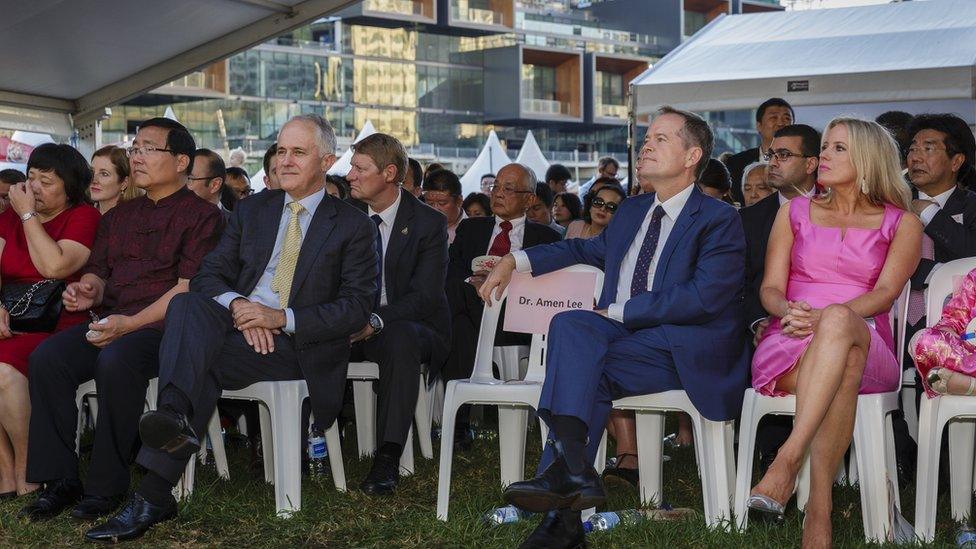Australia budget: Multinationals to be hit with 'Google tax'
- Published
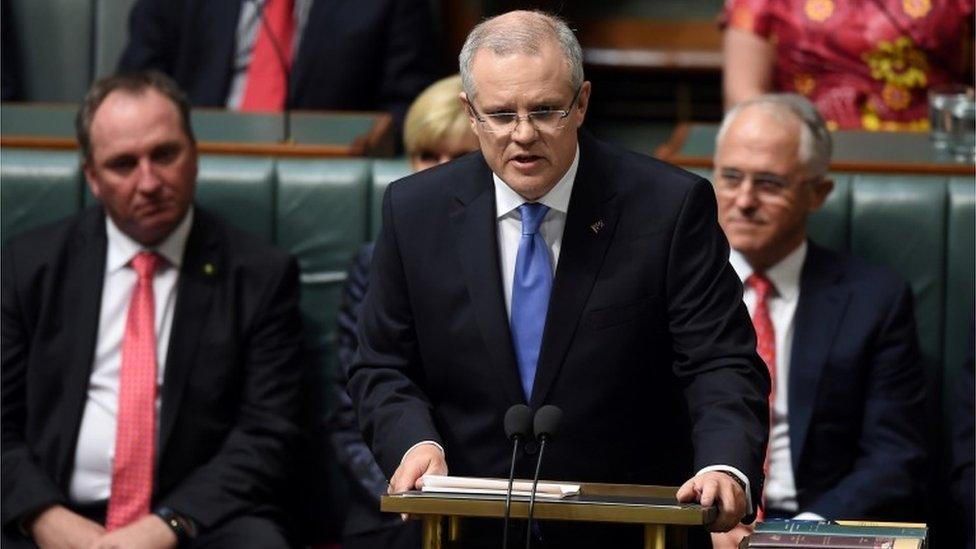
Treasurer Scott Morrison said these were "extraordinary times", as he delivered the budget in parliament
Multinational companies that move profits offshore to avoid tax will be penalised under new measures in Australia's budget.
Companies caught shifting profits will be taxed at a penalty rate of 40%, rather than the usual 30% rate .
Treasurer Scott Morrison's first budget doubles as the government's pitch to voters at an early election slated for 2 July.
The government is seeking to raise additional revenue to pay for tax cuts.
"Everyone has to pay their fair share of tax, especially large corporates and multinationals," Mr Morrison said during his address to parliament.
Multinational firms that shift profits offshore will be taxed at a penalty rate of 40% under a diverted profits tax, similar to the so-called "Google tax" introduced in the UK last year.
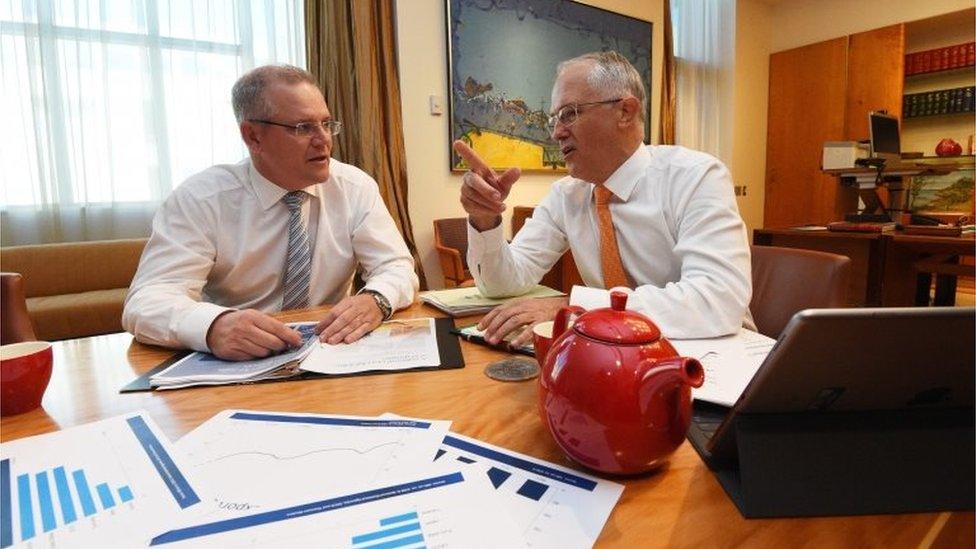
The budget is aimed at boosting economic growth as Australia transitions away from a dependence on mining
The Australian Tax Office will get a 1,000-person strong team of tax avoidance specialists who will target large companies and wealthy individuals avoiding tax.

Analysis: Shaun Davies, Australia editor, BBC News website
With major reform off the table, Scott Morrison needed to find a way to pay for his tax cuts while not blowing out the budget deficit. And he needed to do it without upsetting ordinary Australians who could vote the government out at an early election on 2 July.
Tax-averse corporate giants and tobacco companies are about as politically safe as targets get. Almost every measure in this budget puts political safety before risky reform. In fact, the biggest risk may be that voters view it as too middling and conservative.
The treasurer's raid on the superannuation (retirement savings) of wealthy retirees may lose the coalition some votes, but affects a very small percentage of the population.
Mr Morrison has stuck to his promise to avoid electoral bribes such as large across-the-board tax cuts. Instead he is emphasising his government's credentials as a responsible fiscal manager.
We'll know in two months whether his boring-but-safe fiscal pitch has resonated with the Australian public.

Budget key points:
Firms with a turnover of up to A$10m ($7.6m, £5.2m) will get a tax cut to 27.5% this year.
That will be gradually extended until the tax rate for all businesses comes down to 25% by 2026-2027.
Australians earning more than A$80,000 per year will get a small tax cut.
Wealthy retirees' tax-free savings accounts will be capped at A$1.6m.
Smokers face four 12.5% increases in tobacco excise.
The budget's measures were relatively modest and most were known in advance of the budget speech. Hours before the announcement, the Reserve Bank of Australia cut interest rates to a record low, in an effort to fight deflation.
"This cannot be just another budget because these are extraordinary times," Mr Morrison said.
"Australians have clearly said we must have an economic plan to make this period of transition a success," he said, referring to the move away from mining as the main driver of the economy.
The government also plans to raise revenue by scrapping some tax benefits on retirement savings for the very wealthy.
With major reforms such as a raise to Goods and Services Tax ruled out for this budget, Mr Morrison needed to find additional revenue streams to pay for tax cuts and rein in Australia's estimated A$37.1bn budget deficit.
- Published3 May 2016
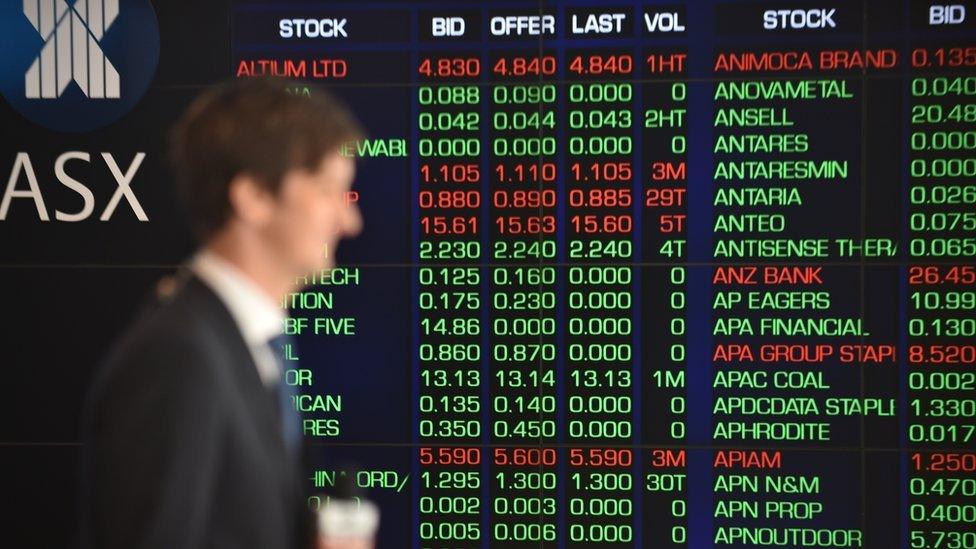
- Published3 May 2016
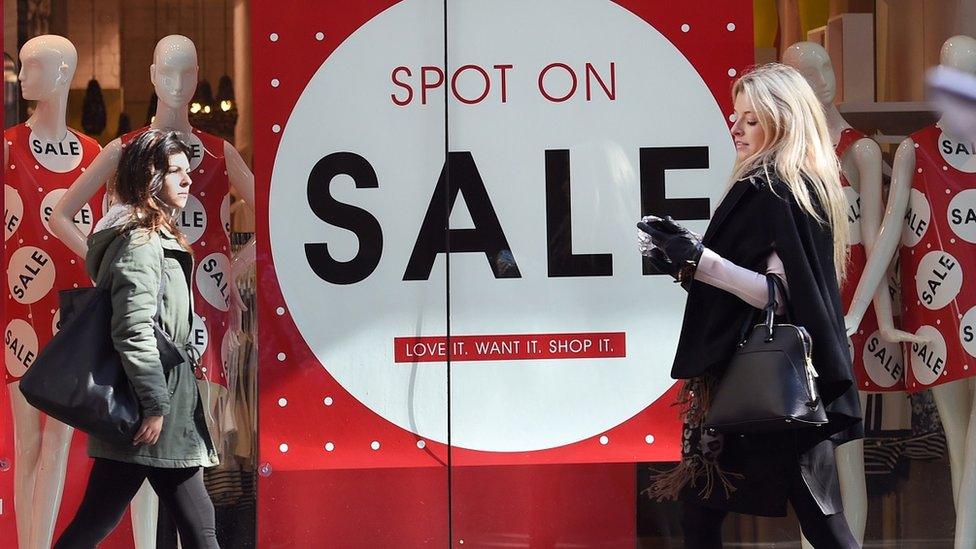
- Published19 April 2016
